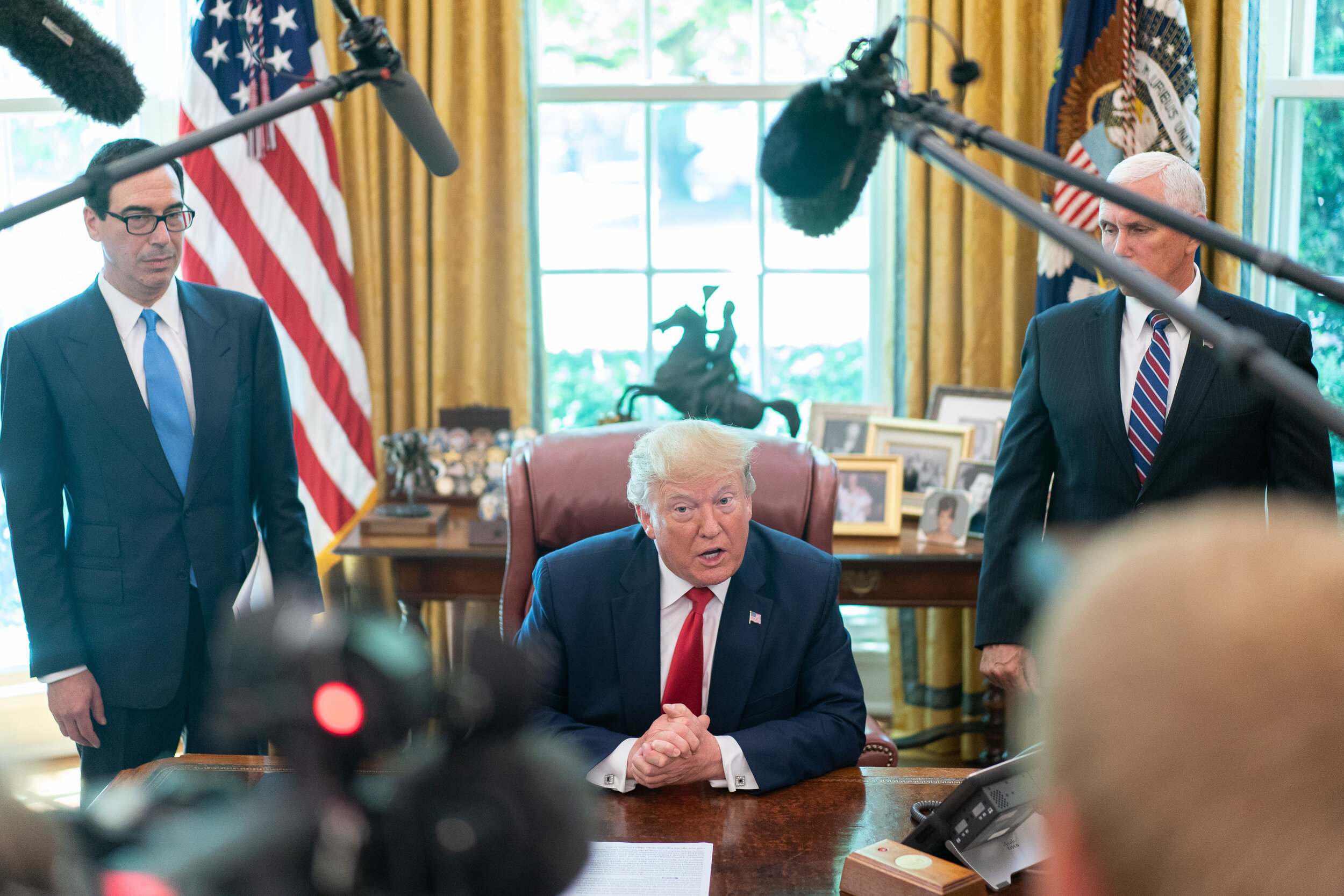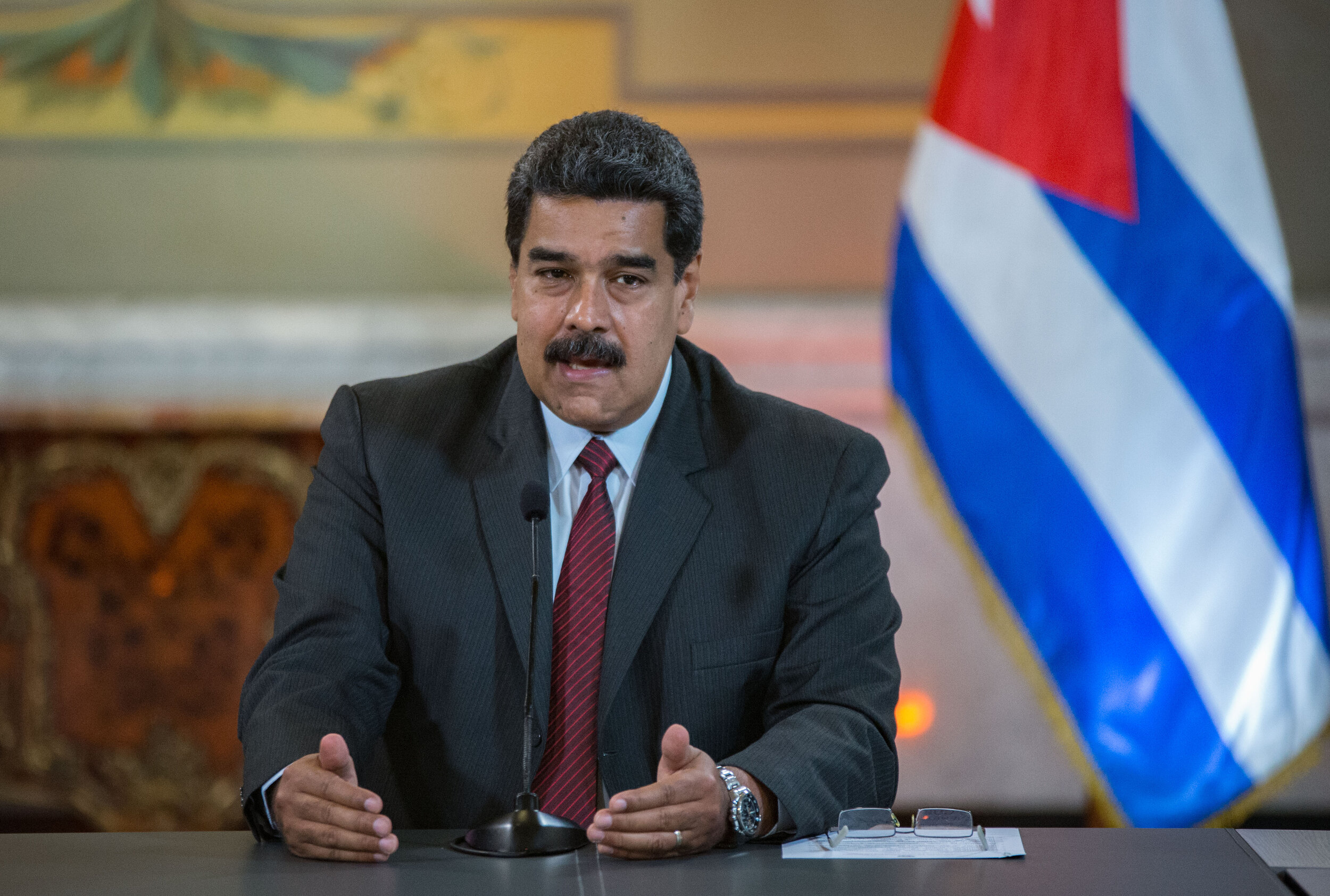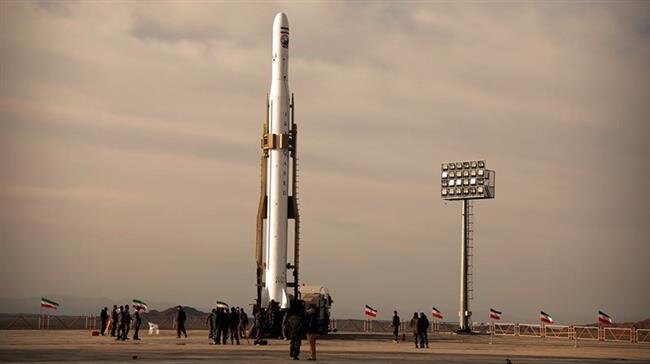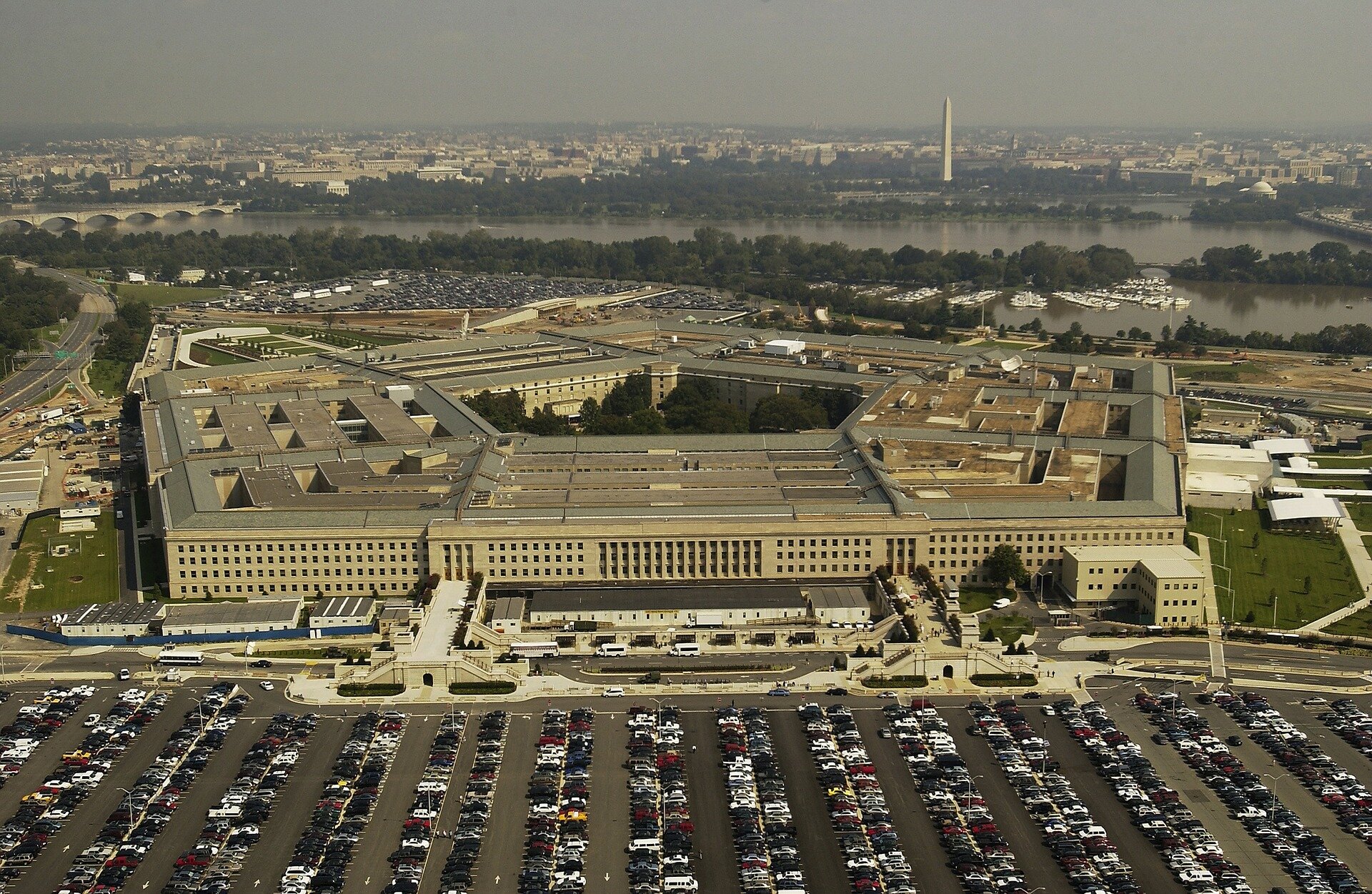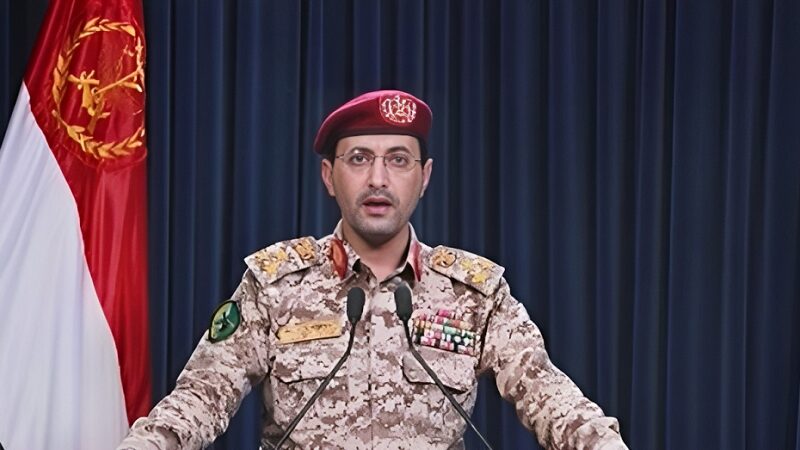PICTURED: President Donald Trump sits in the Oval Office, with Treasury Secretary Steven Mnuchin to his right. Mnuchin is responsible for organizing and implementing Trump’s sanctions campaign on Venezuela and Iran.
WASHINGTON, April 30th, 2020. In a letter sent to Sec. of State Mike Pompeo, Chairman of the House Foreign Affairs Committee Eliot Engel (D – NY) described his incredulity at President Trump’s decision to withhold over $100 million dollars in foreign aid to both the World Health Organization (WHO), and its partner the Pan American Health Organization, (PAHO).
The stated reason for this disbelief is how it will affect the capacity of the health services and people of Venezuela to resist COVID-19’s impact. Venezuela has been heading for an economic human rights disaster, both before, and after a series of crippling economic sanctions that tanked the oil economy, even though she sits upon the largest oil reserves on earth.
The ability for the socialized oil company in the country to generate revenue has been so shattered, that reports from Diario de Cuba stated that Venezuela was trading thousands of barrels of oil to Cuba, its socialist neighbor and last remaining trading partner in the Western Hemisphere, in exchange for things like artisan products and sports coaches.
PICTURED: President of the Bolivarian Republic of Venezuela, Nicolas Maduro.
The valves of socialized petroleum
Truly a petro state, inflation of the money supply in the country was present before the sanctions hit in 2017 and were worsened again in 2019 after Venezuelan President Nicolas Maduro was re-elected, as shown by a study from the Brookings institute.
The Brookings paper is a critique of another work by Mark Weisbrot and Jeffery Sachs, two economic researchers who published a paper regarding the damage the panoply of U.S. sanctions did to the oil economy and food and medicine imports. While the Brookings paper presents strong findings that the sanctions cannot be the cause of some 40,000 estimated child deaths based on the strength of the downward economic trends before the sanctions were imposed, as well as other unexamined co-factors, Weisbrot and Sachs do detail how the sanctions obliterated national oil revenues.
“Annual oil production fell by 30.1 percent in 2018, as compared with 11.5 percent in 2017,” writes Sachs. “The difference in this rate of decline implies a loss of approximately $8.4 billion in foreign exchange”.
In a socialist nation, industries become nationalized, owned by the people who are responsible for their operation – usually some kind of guild or union occupied by industry workers. As history demonstrates, leadership positions in these guilds are often filled by corrupt officials loyal to the socialist central planners, in this case Maduro; and PDVSA the national oil company in Venezuela is no different according to the U.S. Office of Foreign Asset Control (OFAC).
According to OFAC, it is the sale of oil and foreign assets abroad that allows the corrupt Maduro regime to survive, and whether the socialist economic policy of the Chavismo leader is the primary force behind the appalling destitution and humanitarian troubles, entirely removing the only channel through which the great oil wealth of the country can be transformed into a currency more valued in the Venezuelan markets can only hurt the citizenry.
Furthermore, in a point not covered by the critique from the Brookings Institute, sanctions from both European countries and the U.S. has frozen billions of dollars in foreign currency, and gold owned and held overseas which it could liquidize in order to provide lifesaving medicine for Venezuelans in the time of COVID-19.
However instead of allowing the opportunity for the Maduro government to pay for its own citizens’ healthcare, Chairman Engel in Congress wants Trump to give over $100 million in taxpayer dollars to international aid groups to try and prevent a COVID catastrophe in Venezuela.
It would seem more sensible then, for both the citizens of the United States, a country that Venezuela has never threatened, and in fact has been the primary purchaser of Venezuelan oil throughout the 21st century, and the citizens of Venezuela, 87% of whom are now living in poverty according to a recent survey from three Venezuelan universities, to remove the sanctions, perhaps even temporarily, and allow them to mount a response.
Dasht-e Kavir, Iran. April 22, 2020. Iranian military satellite Nour-1 is seen before launch from the Qassed launcher Photo credit: Tasnim news agency.
Sanctions on Iran
Recently, there have been calls to end all United States sanction campaigns in response to the COVID-19 epidemic doing great harm in countries the United States considers her enemy. Iran is chief among these, who at the time of writing has recorded almost 100,000 cases and 6,200 deaths.
However rather than enduring something like a poverty line dividing 9 out of every 10 people as is the case with Venezuela, Iran just managed to launch their first military satellite, one which experts who spoke to Al Jazeera at the time described as “very sophisticated”.
“All parts of the satellite, including the carrier and satellite, have been produced by the Iranian scientists despite the US sanctions,” said the IRGCs leader Major General Hossein Salami at the time.
UN Human Rights Council Chief Michelle Bachelet called on countries to ease sanctions campaigns in countries fighting COVID-19 – the first mentioned being Iran, but also Venezuela, Cuba, and North Korea.
A report on unemployment from the Middle East Institute states that while 20% or more people were already under the poverty line before COVID-19 arrived in Iran, the tremendous and obvious exacerbation of the economic meltdown by the already suffocating sanctions regime imposed by Washington could galvanize the population. This could be all the more likely after Trump blocked Iran’s request for an emergency $5 billion IMF loan on top of placing another group of sanctions on the Iranian oil economy even after it became clear that Iran was going to have a terrible time of the coronavirus.
“Against this backdrop, the Iranian public may actually show more empathy and solidarity with their government. If history provides any guide, Iranians tend to unite during times of exogenous shocks and crises, especially if such crises are exacerbated and exploited by hostile outside forces,” writes Amin Mohseni-Cheraghlou for the institute, an assistant professor in the Department of Economics at American University in Washington.
“This may explain why despite the growing unpopularity of Rouhani’s government, its widespread mismanagement of the economy and the pandemic, and the resulting economic and public health crises, there is as yet no sign of social unrest. On the contrary, if anything, there seems to be an increasing sense of unity and empathy among the public, at least for now”.
In fear of complete economic collapse and possible anarcho-revolutionary conditions, President Hassan Rouhani announced that certain sectors of the economy will be allowed back into motion.
“Under the supervision of the health ministry, all those low-risk economic activities will resume from Saturday,” Rouhani said on Sunday, adding that “those activities will resume in the capital, Tehran, from April 18”.
Governments such as the United States, Iran, China, Spain, and others, have already had tremendous difficulties in preparing, combating, containing, and emerging from COVID-19, and the United States would have to allow these oil-dependant countries back into international markets if their citizens and economies – quite innocent of whatever crimes their governments may have committed, are to have any chance of surviving both COVID-19 and the sanctions which the United States has refused to remove.
Under the Trump administration it seems highly unlikely Chairman Engel will get the PAHO or the WHO their $100 million, and so sanctions relief could be the only hope, even though that’s probably far less likely.
Continue exploring this topic — Bipartisan Propaganda And Bipartisan Imperialism: The Paper Thin Case For U.S. Policy In Venezuela
